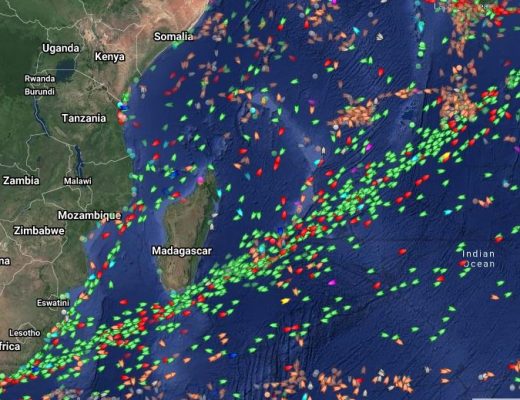There’s a shipload of trouble for turtles and other marine species
Collisions at sea involving marine mammals more frequent than thought

AS conservationists the world over celebrate World Turtle Day today (Saturday), disturbing new findings have revealed that sea turtles, among other large marine animals, are more at risk of being struck by ships than previously thought.
A review authored by the Endangered Wildlife Trust’s Claire Patterson-Abrolat, with researchers Dr Renee Schoeman and Dr Stephanie Plönand, and published in Frontiers of Marine Science, claims that as many as 75 different marine species are recorded as having been killed through collisions with ships.
ALSO READ: Search for shark art and be part of an exciting conservation project
The species include whales, dolphins, sharks, sea otters, seals, penguins and sea turtles.
While incidents involving smaller marine species appear more rare, this could be owing to these not being reported, or ships simply not noticing they had struck anything.
‘It’s not just large commercial vessels that are responsible, but small recreational vessels too,’ said Patterson-Abrolat.
‘Injury to the animals can be pretty horrific, ranging from minor injury through to deep lacerations, fractures, haemorrhaging, amputated body parts such as fins or tails, or even death.’
Injury to an animal may also lead to reduced fitness which, in turn, lowers reproduction rates and even population sizes.
Most affected are the long-lived species which take longer to reach sexual maturity and give birth to just one or two young at a time.
During collisions with marine animals, vessels could also incur damages including cracked hulls, and in some cases crewmen could even be injured or, in extreme cases, knocked overboard.
Some solutions posed by researchers include re-routing of ships’ courses during breeding season, which is realistically only carried out during whales’ migrations.
Other solutions include establishing communication channels with mandatory reporting and early warning systems or having a trained observer onboard.
The report made more specific recommendations such as developing a centralised database of all collisions noted in the oceans, to allow the identification of potential hot-spot areas.
Researchers have also called for further study into how such collisions affect these species’ breeding rates.

HAVE YOUR SAY
Like our Facebook page and follow us on Twitter.
For news straight to your phone invite us:
WhatsApp – 072 069 4169
Instagram – zululand_observer

